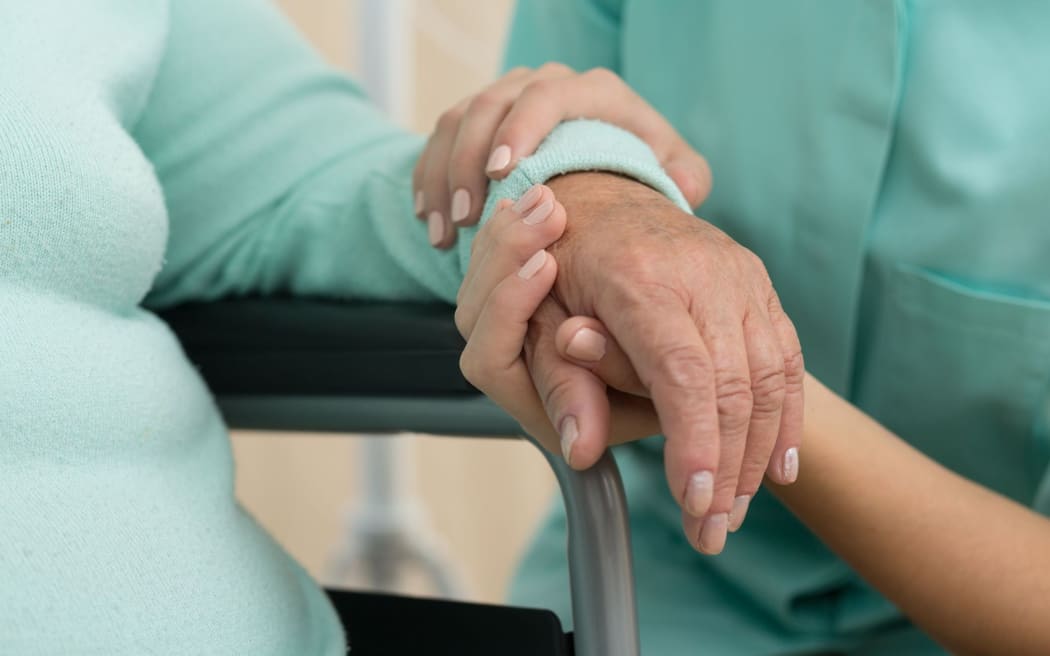
A survey by the College of Psychiatrists, released Tuesday, showed 94 percent believed current resourcing was insufficient and the mental health system was not fit for purpose (file image). Photo: 123rf.com
Some care facilities have resorted to sedating elderly residents with severe mental illness because of a lack of psychiatrists to treat them.
A survey by the College of Psychiatrists, released Tuesday, showed 94 percent believed current resourcing was insufficient and the mental health system was not fit for purpose - with pressure on all areas, from child and maternity to psychogeriatric.
Bronwyn Copeland, spokesperson for geriatric care and chair of the subcommittee for psychiatry of old age, said the shortage of appropriate facilities meant many people had to be treated "in the community".
"Often that means their equally elderly partners are having to care for them at home, or they are in rest homes where they don't have the specialist staff or resources to give them the care they need, and deserve."
Some rest homes had had no choice but to administer "dangerous and unnecessary" medications to help manage patients' symptoms, which could include distress and aggression.
Alternatively, elderly patients with dementia were being housed in general psychiatric inpatient units.
"You can imagine a frail 80-year-old being surrounded by some patients who are much younger, stronger, and possibly quite agitated as a result of their psychiatric illness, so that's not very therapeutic.
"And the disparity across the country is absolutely massive."
"If we don't have beds it means patients end up staying in the general hospital much longer, and the longer they stay in hospital, the more physically unwell they get, the more deconditioned they get, so the greater the chance of them developing other illnesses.
"At a time when hospital services are under pressure, it's a bad use of those resources.
"Our older people deserve better. They have worked their whole lives to make this country what it is and we should be looking after them better. They should not be forgotten like this."
Workloads doubling
Southland's only psychogeriatric specialist said there had been no available inpatient beds for the region's dementia patients needing assessment for the last year.
Dr Daniel Allan started working three days a fortnight in Southland over three years ago.
"I started filling in while they waited to appoint a permanent psychogeriatrician. That hasn't happened and in the meantime, they've gone from seven general adult psychiatrists to just two, and we've just lost our psychologist."
For Allan, who also worked in Christchurch and the West Coast, his workload had more than doubled.
In his absence, the three nurses who ran the service relied on the last two adult psychiatrists to see their patients when they could.
"Resourcing has always been tight, but slowly but surely it's now the norm - I've lost the ability to admit someone for assessment.
"So we tolerate a lot more risk. We have to use people's homes, or their rest home or even a general medical ward or think of some other creative solution that doesn't involve an inpatient bed.
"If it gets really difficult and someone desperately needs a bed, I just have to send them to Dunedin, if there's a bed available."
In the last year, only four out 23 severe elderly mental health patients in Southland have been able to find beds and treatment in the region and the rest have had to be transferred elsewhere.
"I spend a lot of time explaining to families why I have no other option but to send their loved ones away.
"I often have to send people away in the last years of their lives, when they need their family the most to be some distance from their family, sometimes three, sometimes seven hours' drive away.
"It's tragic, especially because many of these husbands and wives are themselves elderly and can't travel to visit."
Allan said the regions were "the canary in the coalmine".
"If we don't take action now, this is going to be happening in our larger metropolitan centres very soon."






